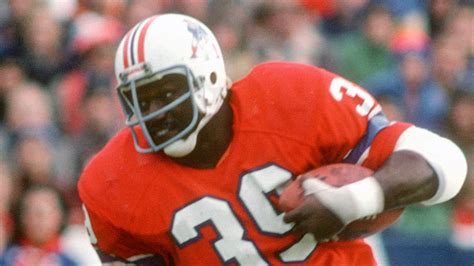The name Sam “Bam” Cunningham is synonymous with American football excellence, particularly in the context of college football and the integration of sports in the southern United States. Born on February 15, 1950, in Santa Barbara, California, Samuel Lewis Cunningham III would go on to have a profound impact on the sport, not just through his athletic prowess but also through his role in breaking down racial barriers in college football, especially in the South.
Cunningham’s journey to becoming a legendary figure in football began with his outstanding performance at Santa Barbara High School, where he demonstrated exceptional skill as a fullback. His talent did not go unnoticed, and he was soon recruited by the University of Southern California (USC), a powerhouse in college football. The decision to attend USC would prove pivotal, not just for Cunningham’s football career but also for the history of college football.
In 1970, Cunningham and his USC teammates were scheduled to play against the University of Alabama’s Crimson Tide. At the time, the University of Alabama, under the coaching of Bear Bryant, was one of the last bastions of segregation in college football. The team had not integrated, and the prospect of playing against an integrated team like USC, with Cunningham as a key player, presented a significant challenge to the status quo.
The game, played on September 12, 1970, at Legion Field in Birmingham, Alabama, would become a landmark event. Cunningham’s performance, where he rushed for 135 yards and scored two touchdowns, was not just impressive from a sports perspective but also carried significant social implications. His dominance on the field, along with the respect and sportsmanship shown by both teams, highlighted the absurdity of racial segregation in sports. The event is often credited with helping to accelerate the integration of college football in the South, as it demonstrated that integrated teams were not only more competitive but also that athletes of different races could come together, compete fiercely, and show mutual respect.
Cunningham’s impact extended beyond that single game. His performance and the outcome of the USC-Alabama match helped to pave the way for other African American athletes to join college football teams in the South. It marked a turning point in the integration of sports, contributing to a more inclusive and diverse athletic landscape.
After his college career, Cunningham was drafted by the New England Patriots in the first round of the 1973 NFL Draft. He went on to have a successful NFL career, playing as a fullback for the Patriots from 1973 to 1982, and was known for his powerful running style, which earned him the nickname “Bam.”
Throughout his life, Cunningham has been recognized for his achievements both on and off the field. He was inducted into the College Football Hall of Fame in 2002, a testament to his enduring legacy in the sport. Cunningham passed away on September 7, 2021, leaving behind a legacy that extends far beyond his athletic achievements. He will be remembered not only as a talented athlete but also as a pivotal figure in the fight against racial segregation in sports, whose impact continues to inspire and influence generations of athletes and sports fans alike.
In understanding Cunningham’s impact, it’s essential to consider the broader historical context in which he played. The late 1960s and early 1970s were a time of significant social change in the United States, with the civil rights movement challenging racial segregation and discrimination across the country. Cunningham’s performance and the integration of college football teams were part of this larger movement, highlighting the power of sports to reflect and influence societal attitudes.
The integration of college football, facilitated in part by Cunningham’s landmark game against Alabama, had a profound effect on the sport. It not only led to more diverse and competitive teams but also played a role in breaking down racial barriers in other areas of American society. Cunningham’s legacy, therefore, extends beyond the confines of sports, serving as a symbol of the potential for individual actions and performances to contribute to broader social change.
What was the significance of Sam Cunningham's game against the University of Alabama in 1970?
+Cunningham's performance in the 1970 game against Alabama was significant because it helped accelerate the integration of college football in the South. His dominant play on the field, coupled with the respect and sportsmanship shown by both teams, challenged the status quo of racial segregation in sports, paving the way for other African American athletes to join college football teams in the region.
How did Cunningham's athletic career evolve after his time at USC?
+After his collegiate career, Cunningham was drafted by the New England Patriots in the first round of the 1973 NFL Draft. He went on to have a successful NFL career, playing as a fullback for the Patriots from 1973 to 1982. Cunningham was known for his powerful running style, which earned him the nickname "Bam" and made him a fan favorite.
What is Cunningham's lasting legacy in sports and beyond?
+Cunningham's legacy extends far beyond his athletic achievements. He is remembered as a pivotal figure in the integration of college football, whose performance helped break down racial barriers in the sport. His impact on society is a testament to the power of sports to drive positive change, making him an enduring symbol of courage, perseverance, and the pursuit of excellence.
In conclusion, Sam “Bam” Cunningham’s life and career serve as a powerful example of how individual achievements in sports can have a profound impact on society. His legacy continues to inspire athletes and non-athletes alike, reminding us of the potential for sports to challenge social norms, promote understanding, and contribute to a more inclusive and equitable society. Through his courage, talent, and dedication, Cunningham left an indelible mark on the history of American sports, ensuring that his story will be told and retold for generations to come.



